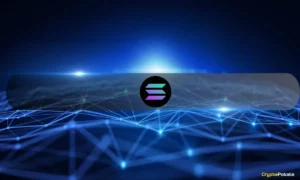
Is Hyperliquid Really Decentralized?
In recent weeks, Hyperliquid has been facing criticism regarding its governance and security. Specifically, concerns have been raised about the platform’s validator selection process and the potential for centralization.
It all began when Kam Benbrik, an employee of Chorus One, took to social media to express his dissatisfaction with Hyperliquid’s decentralized nature. He alleged that new validators were being allowed to “buy their seats” rather than being chosen based on their technical skills. Benbrik claimed that this lack of merit-based selection was a major issue for the platform’s decentralization.
In response to these allegations, Hyperliquid issued a statement refuting the claims. The company stated that all validators are chosen based solely on their performance during a testing phase known as a testnet, and that there is no way to purchase a validator position. While this explanation seemed to ease some market concerns, many still have doubts about the platform’s decentralized nature.
One major issue with Hyperliquid’s system is its centralized control. It has been reported that five validators controlled by the Hyper Foundation hold over 81% of the staked tokens. This raises significant security concerns, as a single entity could potentially take over the network or stop it altogether if they controlled one-third or two-thirds of the stake.
To address these vulnerabilities, Hyperliquid has announced a program aimed at sharing some of its staked tokens with other validators. The company hopes that this will make the system more decentralized and secure.
However, critics have also raised concerns about transparency. Specifically, they are critical of the fact that the code used by Hyperliquid’s validators is currently closed-source. This means that people cannot see or review how it works, creating a lack of trust in the platform. While the company has stated that it will release the code when it is more secure and stable, many feel that this is not enough.
The inability to inspect and verify the system raises significant questions about Hyperliquid’s commitment to decentralization. Open-source code, on the other hand, allows users to inspect and verify the system, which is a customary method of building trust in a platform.
As it stands, concerns surrounding Hyperliquid’s governance and security have raised significant doubts about its decentralized nature.
Source: coinchapter.com


